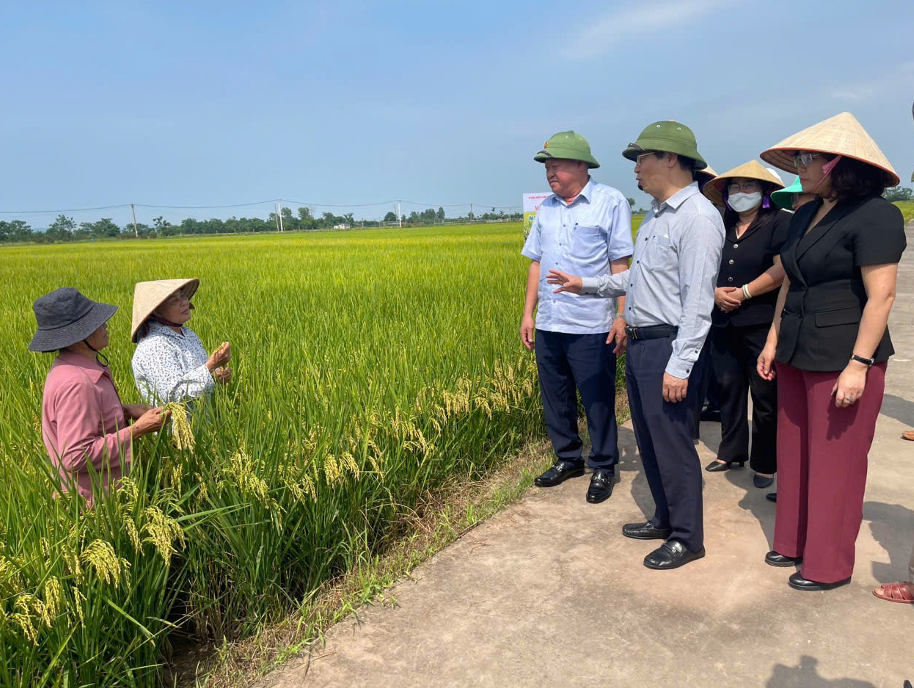An improved System of Rice Intensification (SRI) model that integrates mechanization and organic production shows clear economic and environmental benefits in Lien Mac commune, Me Linh district, Hanoi.
The model is part of a series of technical cooperation activities supported by international organizations in sustainable agriculture and climate, including the Food and Agriculture Organization of the United Nations (FAO), the Japan International Cooperation Agency (JICA), and the Swiss agricultural development organization Helvetas.
 Ministry of Agriculture and Environment and the Hanoi Department of Agriculture and Environment observe the SRI rice transplanting model in Me Linh District. Photo: Huong Giang
Ministry of Agriculture and Environment and the Hanoi Department of Agriculture and Environment observe the SRI rice transplanting model in Me Linh District. Photo: Huong GiangThe model has gained access to advanced production technologies and integrated technical support packages thanks to international collaboration. Participating farmers receive 50% subsidies on machinery (transplanters, tillers), organic seeds, and fertilizers. They are also trained in new cultivation techniques under the guidance of both domestic and international experts. These innovations have helped increase rice yields by 10–15%, significantly reduce production costs, and save up to 40% of seed use and two to three rounds of irrigation compared to traditional farming methods.
Notably, the model has demonstrated significant potential in reducing greenhouse gas emissions - particularly methane (CH₄), a major driver of climate change - thanks to alternate wetting and drying irrigation and using biological agents instead of chemical agricultural inputs. This represents a practical contribution toward Vietnam’s net-zero emissions commitment by 2050, pledged at COP26.
According to Nguyen Quy Duong, Deputy Director of the Department of Plant Protection, the Hanoi model is a prime example of how scientific application, domestic policy support and international technology access can be combined. This approach improves production efficiency and lays the groundwork for a greener agricultural system that is environmentally responsible and better integrated into global value chains.
Hanoi aims to apply the SRI method to 90% of its rice-growing areas by 2030, with 15–20% fully transitioning to organic, low-emission production. Expanding this model is a strategic step in transforming the capital’s agricultural system toward a more circular, innovative, and sustainable approach—where farmers are placed at the center of innovation and integration.